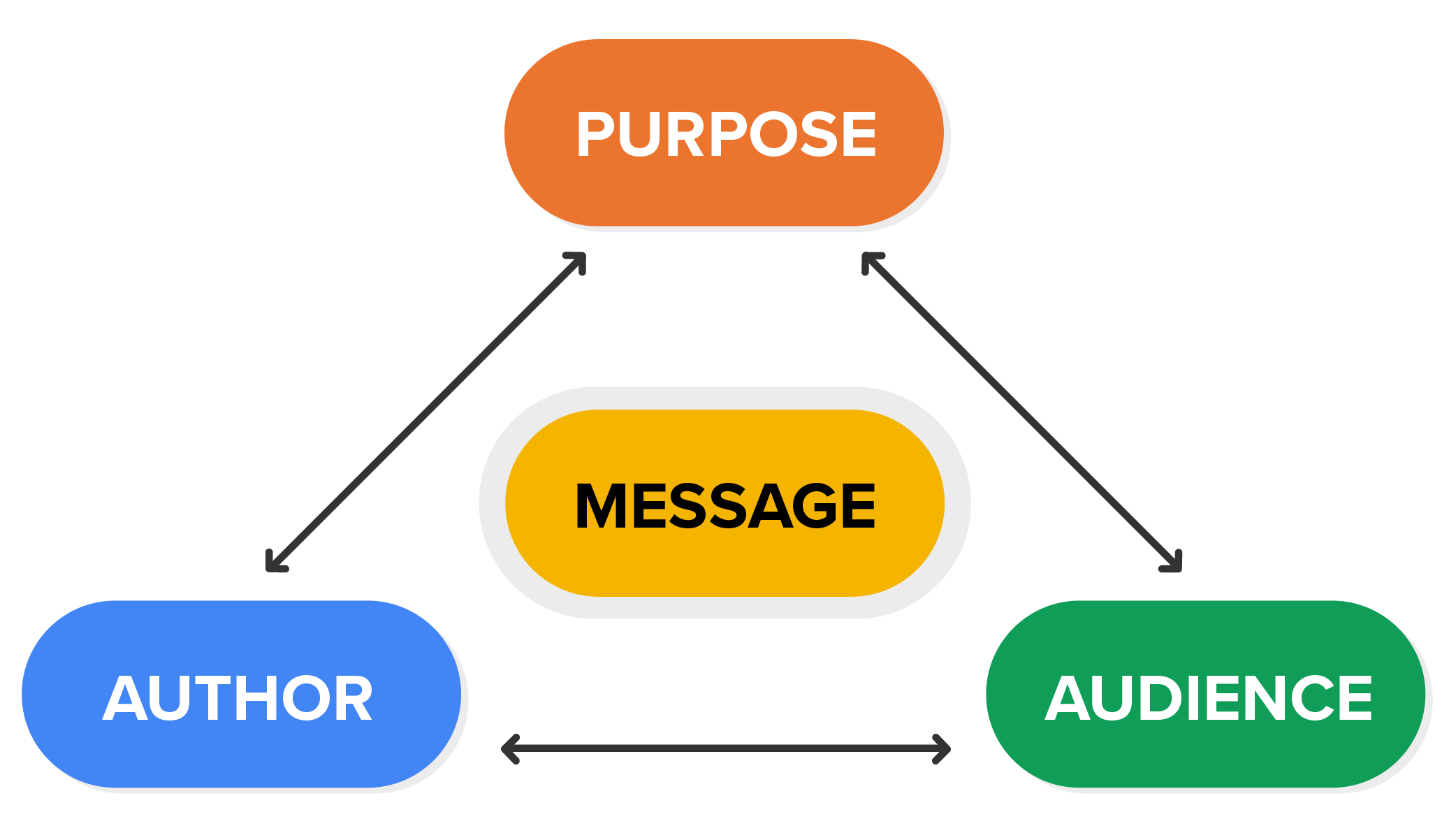Table of Contents |
Welcome to English Composition II! In this course, you will improve your persuasive writing skills, using claims, evidence, and logic. We will guide you through each step in the writing process, which includes conducting scholarly research to support your ideas. After completing this course, you will better understand how to write an academic essay in any field. The goal of this course is to help you feel more confident in your skills as a writer both in college courses as well as in your life and work.
Another goal of this course is to help you feel equipped with the necessary skills to be successful in your field of study, as well as your future career. One of those skills is the ability to produce academic writing. Regardless of your discipline, like criminal justice, business, nursing, or psychology, you will be expected to write in academically appropriate and effective ways. Your work in this course will assist you with the types of papers you will be writing in your other courses and enable you to establish your credibility as an educated professional. In this way, the course is intended to help you to achieve your academic goals by giving you the skills you need in research and writing and the tools that can assist you.
One of these tools is artificial intelligence (AI), specifically the large language models (LLM) behind generative AI tools like ChatGPT and Copilot. You may have used these tools, or maybe they feel intimidating to you. Either way, we will show you how AI can be used to aid you in research and writing in a way that is ethical and, more importantly, does not prevent you from developing the writing skills you will need in future classes and beyond.
Even though we hope that this course builds your confidence, we want to acknowledge that writing, especially for an academic audience, can feel overwhelming. The materials for this course have been designed to help you feel supported, and to help you make connections between academic writing and the skills you use in the rest of your life. Let’s start by reflecting on your writing history.
Being a writer means expressing thoughts, ideas, or information in written language. We do a surprising amount of writing, even if we don’t realize it—from social media posts to sticky notes to texts. We are always writing. Everyone brings different past experiences to their writing history. Understanding your history as a writer, as well as your strengths and weaknesses in writing papers, will help you develop metacognitive writing skills, which are mental tools for identifying and reflecting on your challenges and strengths as a writer and developing strategies for tackling them so that you become a successful writer.

Writing can be a difficulty activity, especially with longer projects that take more planning and energy. If you have always struggled with writing, you should know that you are not alone. Research shows that the majority of students in the United States find it difficult (Febriani, 2022; Richards, 2020). Writing is a demanding task that involves a multi-step process of generating, organizing, and developing ideas and requires proper tone, diction, style, and grammar. This course will offer step-by-step scaffolding and guided participation to support you through the process of developing your academic writing skills.
The tools essential for writing effectively in academic environments are also applicable to writing in any professional job setting. By working through the components of an academic paper, you will improve your ability to identify issues, consider applicable perspectives, and devise viable solutions to those problems.
Later in this course, you will choose a topic you are curious about and write an academic paper on that topic. Together, we will:
A rhetorical situation is the context and circumstances around a speech or piece of writing, or really what any writer needs to think about in order to communicate well. We call it a rhetorical situation to make it easier to remember. The rhetorical situation has three key elements:

IN CONTEXT
Preparing for Different Writing Situations
Imagine you are a computer scientist, and you have been invited to speak at a conference to explain your ideas for cybersecurity. As you prepare your slides and notes for your speech, you are thinking about these questions:
Now, imagine you are the same computer scientist, and you have a nephew in third grade. Your nephew’s teacher has invited you to come to his class to explain what you do at work. Will you give the same speech to the class of 8-year-olds? How will your language and information be the same or different?
- What kind of language should I use?
- What information should I include on my slides?
When you are thinking about your own writing goals, who do you want to be able to write about? Who do you want to be able to convince? What kinds of skills do you need to develop to make the things possible? You can use the answers to these questions as part of your reflection at the end of this tutorial.
Academic writing is a style of writing used in college, which includes evidence-based arguments and logical reasoning. Academic writing (like any writing) is a rhetorical situation, with a purpose, author, and audience.
The purpose of academic writing is to present information and analysis in a precise and credible manner, using a more formal style and relying on cited research sources. When the writing is a college assignment, it demonstrates that you understand the concepts covered in a class. But academic writing extends beyond the classroom, even beyond college. The greater purpose is to inform and persuade readers who have an interest in the subject. Thinking about your writing in this way will help you to imagine your purpose is more than passing the class and your audience is more than a single instructor or grader, instead thinking of the real influence you want to have on issues most important to you.
EXAMPLE
If you are majoring in education, you will write academic essays on topics in education and might pick topics like the pros and cons of assigning homework. But after college, you might write such essays for education journals that influence principals and education administrators, who might change policies after being influenced by your writing.Your big, long-term goal in this course is to write an argumentative research essay. When writing an argumentative research essay, you will need to draw on other people’s research to support your original thinking. This requires a balance of your ideas and the ideas you encounter as you research. This assignment will ask you to:
The Touchstones in this course, or what we call our big writing projects, build toward writing a persuasive essay by breaking down the process into manageable steps. Even if your major does not require a lot of persuasive essays, those skills will transfer to other types of writing. There are several types of writing you may be asked to produce in an academic setting:
In this course, we will focus on argumentative writing. Regardless of your specific program of study or discipline, the purpose of argumentative writing is to persuade the reader to accept a particular point of view or take a specific action. This kind of writing presents a well-reasoned argument supported with relevant and credible evidence and logical reasoning, which aims to convince your audience to consider or agree with your stance on your topic.
EXAMPLE
In a business class, you may be asked to write a persuasive paper on the advantages and disadvantages of combining businesses, whether leadership is a talent that can be learned or something that comes naturally, or whether employees should be allowed to join public unions. In a criminal justice class, you may have to write an argumentative paper on whether the death penalty is an effective form of punishment, the influence of media on public perception of crime, or the link between poverty and crime.REFERENCES
Febrian, T. N. (2022). “Writing is challenging”: Factors contributing to undergraduate students’ difficulties in writing English essays. Erudita Journal of English Language Teaching, 2(1), 83-93. e-journal.iainpekalongan.ac.id/index.php/ERUDITA
Richards, R. G. (2020). Understanding why students avoid writing. LD OnLine. www.ldonline.org/ld-topics/writing-spelling/understanding-why-students-avoid-writing